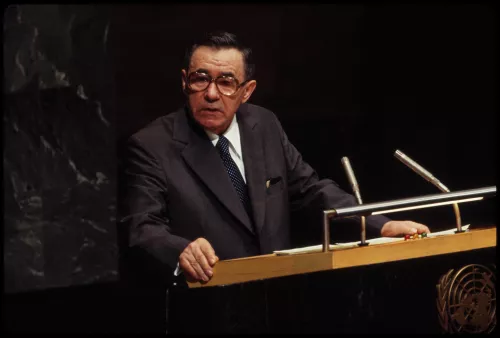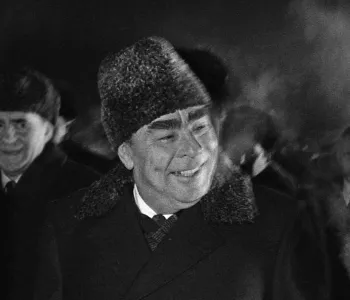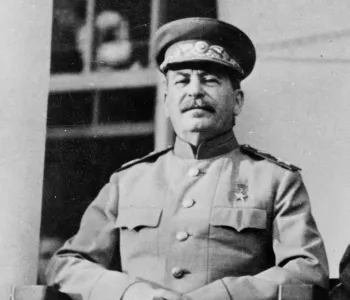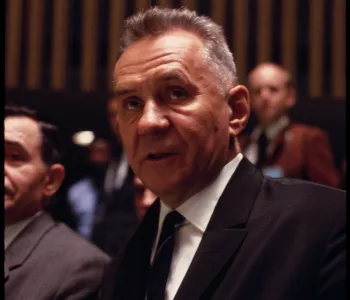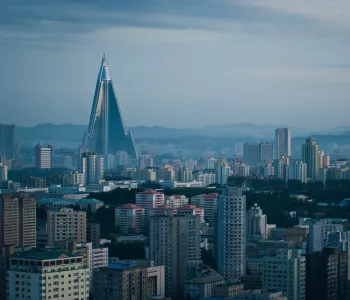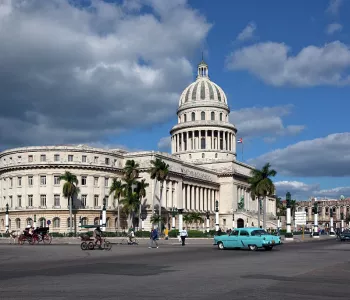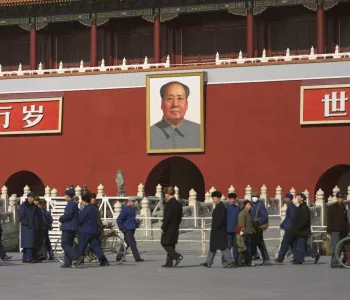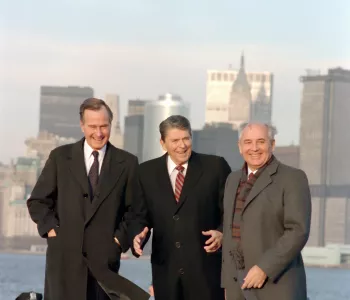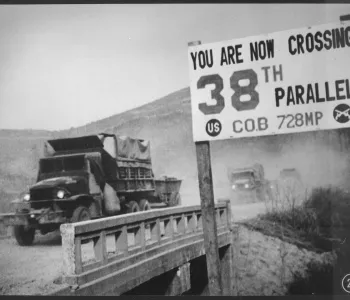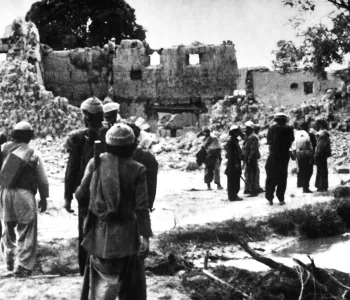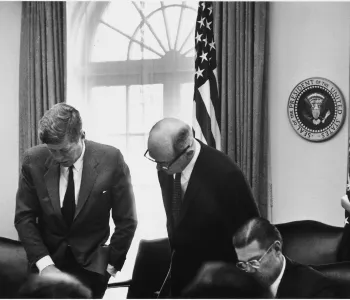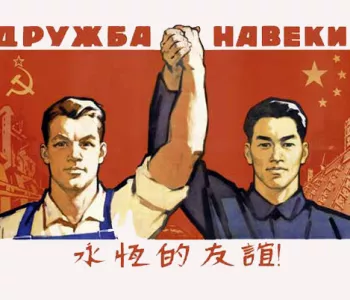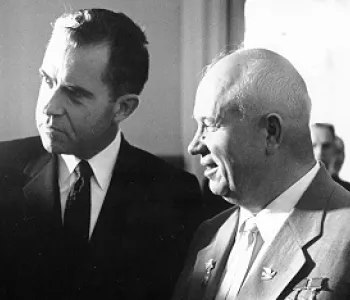Born July 6, 1909, in Belarus, Gromyko graduated with a master's degree from the Minsk Institute of Economics (1934) and lectured at the Soviet Academy of Sciences (1936-1939). Stalin's purges left many opportunities for advancement, and Gromyko was appointed chief of the U.S. Division of Foreign Affairs (1939).
While still learning English, he was sent to Washington, D.C., as counselor to the Soviet Embassy and in 1943 was appointed ambassador to the United States (1943-1946). As ambassador he took part in the Allied conferences at Tehran (1943), Yalta (1945) and Potsdam (1945). He also headed the Soviet delegation to the Dumbarton Oaks Conference (1944), which laid the groundwork for the United Nations, and was an original signator to the 1945 United Nations Treaty Charter. He was relieved of ambassadorial duties (1946-1948) to serve as the U.S.S.R.'s first permanent representative to the U.N. Security Council and as deputy foreign minister (1946). In 1949 he was promoted to first deputy foreign minister and returned to Moscow. But as a protégé of Molotov, his career began to falter when Molotov fell out of favor, and Gromyko was appointed ambassador to the Court of St. James (Great Britain).
After Stalin's death, Gromyko returned to Moscow, resumed his position as first deputy foreign minister, became a full member of the Central Committee in 1956 and was appointed Soviet foreign minister in 1957. As foreign minister he served under Khrushchev, Brezhnev, Andropov and Chernenko. He was directly involved in the Cuban Missile Crisis, and met with President Kennedy. He also helped negotiate arms limitations treaties, specifically the ABM Treaty, the Nuclear Test Ban Treaty, SALT I and II, and the INF and START agreements. During the Brezhnev years he helped construct detente. In 1973 he was appointed a full member of the Politburo, bypassing candidate status.
Gromyko was a skilled negotiator and a knowledgeable politician and diplomat. Scholars debate how much foreign policy Gromyko implemented and how much he formulated at different points in his career. When Brezhnev died, he supported first Yuri Andropov and later Gorbachev for the position of general secretary of the Communist Party of the Soviet Union. However, Gorbachev removed him from his post as foreign minister (1985), appointing him to the figurehead position of chairman of the Presidium of the Supreme Soviet, a post he held until 1988, when he retired from all political activity. He died July 2, 1989, in Russia at age 79.
